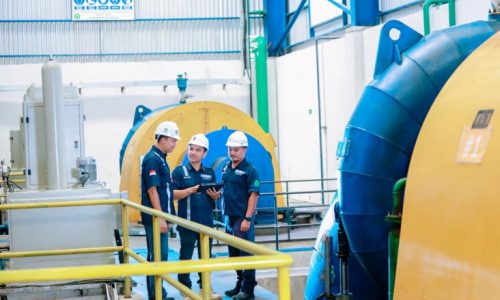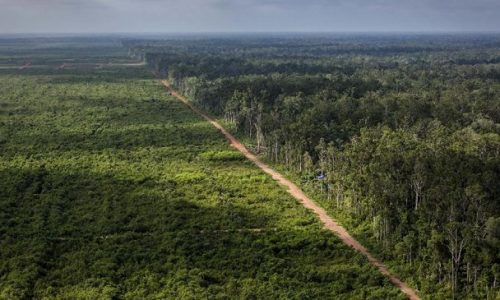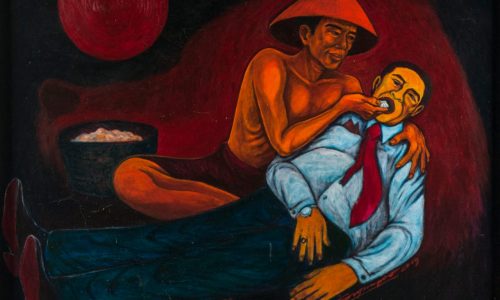The House of Representatives (DPR) unanimously endorsed three bills on the establishment of three new provinces in Papua during its plenary session on April 12, 2022. If the bills were passed into laws, the most eastern region of Indonesia will have a total of four provinces: Papua and the new three provinces of South Papua, Central Papua and Papua Central Highlands.
South Papua consists of Merauke, Asmat, Boven Digul and Mappi. Papua Central Highlands includes Wamena, Lani Jaya, Puncak, Yalimo, Yahukimo, Tolikara and Ndungga. Central Papua covers Mimika, Nabire, Dogiyai, Deiyai, Paniai and Intan Jaya.
Acceleration to development
Lawmaker Yan P. Mandenas of the Gerindra Party representing Papua electoral district said the three autonomous provinces would provide the people with accelerated development and well-being by optimizing the community’s potential.
According to Mandenas, Statistics Indonesia (BPS) indicated that Papua still had the highest poverty rate in Indonesia, with 26.86% in March 2021, followed by West Papua province with 21.84%.
“Several other issues exist in Papua such as violence, human rights violations, marginalization, conflicting views regarding Papua’s history and political status, the disintegration of the nation, distances between areas, lack of development, high product costs, and inadequate basic infrastructures and a shortage of human resources,” he said.
The establishment of the new provinces will reduce the distance between the people and the government. This will increase the people’s awareness on their rights to access public services and the development of public facilities and programs for their welfare.
Easier to administrate
Guspardi Gaus of the National Mandate Party (PAN) representing West Sumatra emphasized that creating the three provinces would bring prosperity to the indigenous Papuans.
Papua has twice the area of Java, but with only two regions, compared to five in Java. The new provinces will enable people living in the mountains of Papua, who are far from the center of the region, to access government services more efficiently.
Second, Gaus said, the establishment of new provinces in Papua would contribute to the economy’s growth. Creating independent regions calls for creating a governor’s office, an agency’s office, and a local parliament’s office. In the past, this area was not a province; now, it serves as the region’s center. The people will benefit from this growth. The new provinces will require leaders, more civil servants and bureaucrats who are indigenous Papuans. There will be a significant number of Papuans being recruited.
Thirdly, education will improve due to improved governance, and people will have more access to education, prosperous and healthier. Therefore, the creation of the new provinces will have a multiplier effect for the benefit of indigenous Papuans.
Fourth, improved road and transportation access will benefit the locals and encourage investors to locate in Papua. The creation of new provinces in the region will result in new roads being constructed between adjacent sections and multiple areas.
As a result of Papuan prosperity and national economic growth, Gaus hoped that the people of Papua would be able to understand the importance of wealth, health, and education. This eventually becomes part of a strategy to make Papuans comprehend the objectives of Indonesia’s unitary state and the fact that Papua is indivisible from Indonesia.
“Papua will have a special autonomy from the government. This is part of the effort to speed up the development process,” Gaus explained.
According to Gaus, the bills will be discussed between the House’s Commission II overseeing home affairs and the government during the next sitting session. Moreover, the legislature will hold a hearing with all stakeholders from Papua, including academicians from universities, political figures, NGOs and MRP (Papuan People’s Assembly) to deliberate the bill.
Protests against government’s policy
Despite the government’s good initiatives, there has been a widespread protest against government policy’s top-down approach and centralization in establishing independent provinces.
The KNPB (West Papua National Committee) spokesman Nesta Ones Suhuniap said there had been massive protests in Papua in the last two months against the proposal to establish the three new provinces. Thousands of protesters took to the streets throughout 40 regions and cities in Papua to express their discontent.
In Yahukimo regency, at least two people were shot dead, and ten others were injured on March 15, 2022. Police arrested and later released some of the protesters. Until recently, Papuans have also expressed their rejection in discussions, webinars, seminars, and press conferences.
Suhuniap claimed 95% of Papuans rejected the proposed provinces.
Real reasons behind new provinces
The DPR and the government’s insistence on creating new provinces in Papua has raised concerns among civil societies and the freedom movement.
Markus Haluk from the United Liberation Movement for West Papua (ULMWP) said the establishment of the new provinces in Papua was a conspiracy by elites in Jakarta to facilitate and smooth their exploitation of natural resources and investment interests. Papua is famous of being rich in natural resources such as gold, copper, uranium, coal, oil palm and natural gas.
The creation of these provinces will facilitate the development of basic infrastructures such as roads, airports and seaports, which will promote access to capital and encourage investment in the mining and non-mining sectors.
Having an original version of the Papua Special Autonomy Law that gave the governor, the Papua Legislative Council (DPRD) and the MRP firm authority is perceived as an obstacle to investments in the region after the enactment of the Omnibus Law.
“Following the previous special autonomy law, any exploitation of the natural resources of Papua and investments in Papua must be approved by the local administration, the local DPRD and the MRP,” said Haluk.
A source said currently, the Jakarta elite is unable to exercise their natural resource exploitation and investment interests in Papua due to the difficulties and obstacles imposed by the local administration and the local DPRD under incumbent Governor Lukas Enembe. According to the source, Jakarta’s elite is disappointed because Enembe is not supporting Jakarta’s intention to exploit the untapped Wabu gold block located in Intan Jaya.
According to the Energy and Mineral Resources Ministry data, Wabu Block has 117.26 million tons of gold ore and it is included in gold and copper mining giant PT Freeport Indonesia’s contract since 1991. The company has explored a total of 200,000 hectares of this block.
On September 22, 2020, State-Owned Enteprises Minister Erick Thohir wrote to Energy Minister Arifin Tasrif requesting that state-owned mining firm PT Antam Tbk, a subsidiary of Indonesian mining holding company Mind ID, take over the management of the Wabu Block.
Following a letter sent to the energy and mineral resources ministry on February 18, 2020, Enembe requested the church to temporarily halt all administrative processes relating to the Wabu Gold block due to security concerns. The restive area remains the scene of sporadic skirmishes between Indonesian security forces and armed separatist groups. According to a source, some Jakarta elites perceive Enembe as having ties to the armed and political wings of the separatist movement or as a “double-dealer”.
Apart from Antam, a source in intelligence confirmed NGO activists’ allegations. The source said that the Coordinating Minister of Maritime and Investment Luhut Binsar Pandjaitan has a gold mining concession around the Wabu Block. There are also vast gold reserves in West Papua’s Kepala Burung (Bird’s Head) area and Merauke. These are known as the Papua Gold Belt or Papua Folt Belt.
A revised Papua special autonomy law and the creation of new provinces in Papua will remove the authority of Enembe-led administration, Papua DPRD and the MRP to regulate policies that benefit indigenous Papuans, protect natural resources, and establish independent autonomy regions. In its old version, the special autonomy law for Papua contradicts the Omnibus Law, which facilitates foreign investment interests in Indonesia.
By creating new provinces, Jakarta can place its puppets, said Haluk. “They can control [Papua] as governors, political elites and bureaucrats in the new provinces will likely to implement their interests and agenda,” he concluded.









